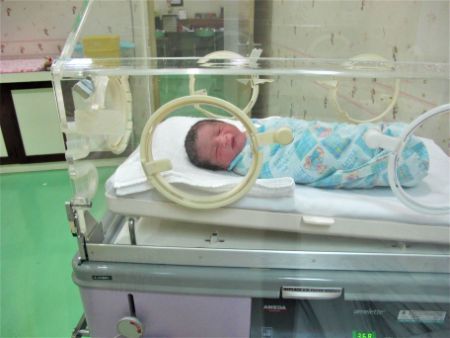Circumcision is a surgical procedure that separates the foreskin from the penis. It typically occurs on healthy babies during their first few days of life.
Circumcising your baby is generally safe and effective for newborns, with several advantages to boot. However, there may also be risks involved. Ultimately, whether or not to circumcise your baby depends on your family’s preferences.
Reduced Risk of Cervical Cancer
Human Papillomavirus (HPV) is the most widespread sexually transmitted virus in America and has been linked to almost all cases of cervical cancer. While HPV cannot be eradicated completely, you can reduce your risk by taking certain steps to lower exposure.
The most essential step is getting vaccinated against HPV. To determine if you qualify, speak to your doctor.
Other known risks for cervical cancer include age at first sexual act, the number of sexual partners you have and engaging in prostitute sex.
Researchers found that women whose male partners had undergone circumcision had a lower risk of developing cervical cancer than did those whose partners weren’t circumcision doctors . These conclusions were drawn from seven studies involving approximately 2000 couples.
Less Risk of HIV and HPV Infections
Sexually transmitted infections (STIs) are sexually transmitted illnesses caused by microorganisms (chlamydia, gonorrhea and syphilis), protozoa (trichomonas) or viruses (herpes simplex virus type 2 or human papillomavirus).
Men who undergo circumcision have a lower risk of HIV acquisition compared to other sexual partners, as most STIs are spread through heterosexual contact and MC reduces this exposure.
Circumcision also reduces the risk of contracting high-risk human papillomavirus (HPV) infection, a sexually transmitted illness which has been known to lead to cervical cancer or other serious infections and pre-cancers.
Studies have indicated that circumcision can reduce the risk of contracting sexually transmitted infections and HPV infections in HIV-infected men and women. While these results are encouraging, more research needs to be done in order to fully comprehend their full extent. Until then, both genders should be encouraged to have their male partners circumcised; this will help protect against STIs, HIV infections, and ultimately save lives.
Less Risk of Urinary Tract Infections
Urinary tract infections are a widespread issue that affects millions of people annually. They can affect any part of the urinary tract, from the urethra (tube that empties urine out) to bladder and kidneys.
Most UTIs are caused by bacteria that enters the urethra and travels up to the bladder. Eventually, these germs will leave after your body flushes them out with urine.
Men and women alike are susceptible to UTIs due to a variety of reasons. Women’s urethras are shorter than their male counterparts, which means bacteria have less distance to travel before reaching the bladder.
Other risk factors for developing a UTI during pregnancy include having a blocked urethra, cystitis (inflammation of the bladder), and experiencing multiple UTIs. Furthermore, women who deliver their babies prematurely or have low birth weight babies are more susceptible to developing an UTI during their pregnancy.
Less Risk of Inflammation
Circumcision is an ancient practice that can be performed as an infant or later in life. Men who undergo circumcision have fewer risks of inflammation and infection as a result.
One reason is that men who are circumcised often suffer from less phimosis, a condition in which the foreskin becomes difficult to retract and causes penile secretions to accumulate underneath it. Furthermore, circumcised individuals tend to have fewer bacteria in their genital tract which could lead to inflammation or infections.
Circumcised men tend to heal HPV infections faster, thus decreasing the risk of developing penile cancer.
Additionally, male circumcision may reduce the risk of urinary tract infections in young children. Studies have found that babies who underwent circumcision had a much lower likelihood of contracting these infections than their peers.
experiencing multiple UTIs. Furthermore, women who deliver their babies prematurely or have low birth weight babies are more susceptible to developing an UTI during their pregnancy.
Less Risk of Inflammation
Circumcision is an ancient practice that can be performed as an infant or later in life. Men who undergo circumcision have fewer risks of inflammation and infection as a result.
One reason is that men who are circumcised often suffer from less phimosis, a condition in which the foreskin becomes difficult to retract and causes penile secretions to accumulate underneath it. Furthermore, circumcised individuals tend to have fewer bacteria in their genital tract which could lead to inflammation or infections.
Circumcised men tend to heal HPV infections faster, thus decreasing the risk of developing penile cancer.
Additionally, male circumcision may reduce the risk of urinary tract infections in young children. Studies have found that babies who underwent circumcision had a much lower likelihood of contracting these infections than their
peers
Circumcision is an ancient practice that can be performed as an infant or later in life. Men who undergo circumcision have fewer risks of inflammation and infection as a result.
One reason is that men who are circumcised often suffer from less phimosis, a condition in which the foreskin becomes difficult to retract and causes penile secretions to accumulate underneath it. Furthermore, circumcised individuals tend to have fewer bacteria in their genital tract which could lead to inflammation or infections.
Circumcised men tend to heal HPV infections faster, thus decreasing the risk of developing penile cancer.
Additionally, male circumcision may reduce the risk of urinary tract infections in young children. Studies have found that babies who underwent circumcision had a much lower likelihood of contracting these infections than their peers


